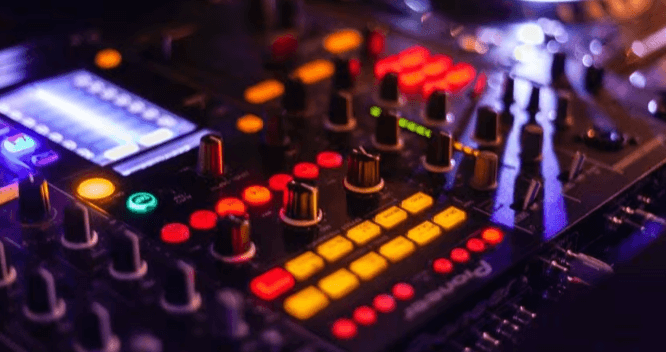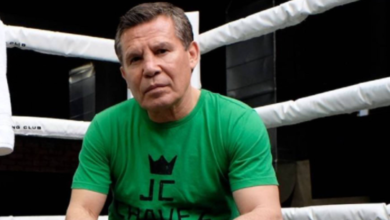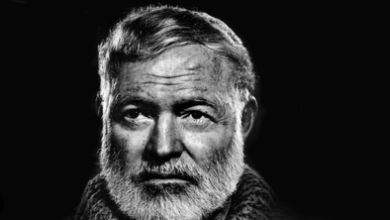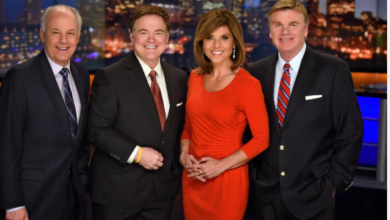Top DJ Tips for a Memorable Event

Introduction
A great DJ can turn any event into an unforgettable experience. Whether it’s a wedding, corporate event, birthday party, or any other gathering, the DJ plays a crucial role in setting the tone, keeping the energy high, and ensuring everyone has a fantastic time. However, being a successful DJ requires more than just a good playlist. It involves careful planning, understanding the audience, and knowing how to handle various aspects of the event. In this article, we will explore the top DJ tips for creating a memorable event, offering insights into music selection, equipment management, crowd engagement, and more.
Know Your Audience
One of the most important aspects of being a successful DJ is understanding your audience. Every event is different, and what works for one crowd may not work for another. Before the event, take the time to learn about the preferences and demographics of the attendees. Are they young or older? Do they prefer classic hits, contemporary music, or a mix of both? Understanding these factors will help you curate a playlist that resonates with the audience and keeps them engaged throughout the event.
Research the Event Type
Different events have different expectations when it comes to music. A wedding might require a mix of romantic ballads, classic hits, and dance tracks, while a corporate event might call for more subdued background music that gradually transitions into more energetic tunes. By researching the event type and talking to the organizers, you can tailor your music selection to fit the occasion perfectly.
Create a Diverse Playlist
A diverse playlist is key to keeping everyone at the event happy. Include a mix of genres, tempos, and eras to cater to different tastes. This will ensure that everyone hears something they enjoy and keeps the dance floor lively. Remember to include both popular songs that everyone knows and some unique tracks that add a personal touch to the event.
Master the Art of Reading the Crowd
One of the most critical skills for a DJ is the ability to read the crowd. This means observing how the audience is reacting to the music and making adjustments on the fly. If the dance floor is packed and the energy is high, you might want to keep the momentum going with more upbeat tracks. On the other hand, if the crowd seems to be losing interest, it might be time to switch things up with a different genre or a well-timed slow song.
Be Flexible with Your Playlist
While it’s essential to prepare a playlist in advance, flexibility is key to being a successful DJ. Don’t be afraid to deviate from your planned set if the crowd isn’t responding as expected. Having a wide selection of music at your disposal allows you to adapt to the mood and keep the party going.
Engage with the Audience
Engaging with the audience is another way to ensure the event is memorable. Whether it’s taking song requests, interacting with the crowd through the microphone, or simply gauging the mood, your interaction can elevate the experience. People love feeling involved, and a DJ who can make them feel like part of the event will be remembered long after the music stops.
Plan Your Setlist Carefully
Planning your setlist is more than just picking songs—it’s about creating a journey for the audience. A well-structured setlist will have peaks and valleys, with moments of high energy balanced by slower, more relaxed tracks. This helps to keep the audience engaged without exhausting them, ensuring they stay on the dance floor for the entire event.
Start Slow and Build Up
A good setlist often starts with slower, more relaxed tracks as people arrive and settle in. As the event progresses and the crowd becomes more comfortable, you can gradually increase the tempo and intensity of the music. This creates a natural flow that mirrors the energy of the event, making it feel seamless and well-paced.
Include Crowd Favorites
While it’s important to have a unique and varied setlist, don’t forget to include crowd favorites. These are the songs that everyone knows and loves, and they’re sure to get people on the dance floor. Mixing these with less familiar tracks can keep the energy high while also introducing your audience to new music.
Have a Backup Plan
No matter how much you plan, things can always go wrong. Whether it’s a technical issue, an unexpected change in the event schedule, or a song that doesn’t go over as well as you’d hoped, having a backup plan is essential. Keep a few extra tracks in reserve that you can quickly switch to if needed, and make sure you’re prepared to handle any unexpected situations that arise.
Invest in Quality Equipment
Your equipment can make or break your performance as a DJ. High-quality sound systems, reliable mixers, and professional-grade headphones are essential for delivering a flawless performance. Investing in good equipment not only improves the sound quality but also reduces the risk of technical issues during the event.
Understand Your Equipment
It’s not enough to have great equipment—you also need to know how to use it properly. Spend time familiarizing yourself with your gear, from setting up and testing the sound system to troubleshooting common issues. This knowledge will help you avoid potential problems and ensure that everything runs smoothly on the day of the event.
Test Everything Before the Event
Testing your equipment before the event is crucial. This includes setting up your sound system, checking the levels, and making sure all your connections are secure. It’s also a good idea to have backup cables, batteries, and other essentials on hand in case something goes wrong.
Pay Attention to Sound Quality
Sound quality is one of the most important aspects of a DJ’s performance. Make sure your sound system is properly calibrated and that the volume levels are appropriate for the venue. Too loud, and you risk overwhelming the audience; too quiet, and the energy will drop. Pay attention to the acoustics of the room and adjust your settings accordingly to ensure the best possible sound.
Create Smooth Transitions Between Songs
Smooth transitions between songs are a hallmark of a great DJ. Seamless transitions keep the energy flowing and prevent any awkward pauses or jarring changes in tempo. Mastering the art of transitioning between tracks takes practice, but it’s a skill that can significantly enhance your performance.
Beatmatching and Phrasing
Beatmatching involves aligning the beats of two tracks so that they play in sync, creating a seamless transition between them. Phrasing, on the other hand, involves matching the musical phrases of two tracks to ensure that the transition feels natural. Both of these techniques are essential for creating smooth, professional-sounding mixes.
Use Effects Sparingly
While effects like reverb, echo, and filters can add depth to your transitions, it’s important not to overdo them. Too many effects can be distracting and take away from the music. Use effects sparingly to enhance your transitions without overwhelming the audience.
Practice Makes Perfect
The best way to master transitions is through practice. Spend time experimenting with different tracks and techniques, and listen back to your mixes to identify areas for improvement. The more you practice, the more confident you’ll become in your ability to create smooth, seamless transitions that keep the energy high.
Stay Calm and Adapt to Challenges
No event is without its challenges, and how you handle these challenges can make a big difference in the success of your performance. Whether it’s dealing with technical issues, managing difficult guests, or handling last-minute changes, staying calm and adaptable is key.
Prepare for the Unexpected
While you can’t predict every challenge that might arise, you can prepare for the unexpected. This means having backup equipment on hand, being familiar with the venue, and having a plan in place for common issues like power outages or equipment failures.
Keep Your Cool
When things go wrong, it’s important to stay calm and composed. Panicking will only make the situation worse and can negatively impact your performance. Take a deep breath, assess the situation, and take action to resolve the issue as quickly and efficiently as possible.
Learn from Each Event
Every event is an opportunity to learn and improve. After the event, take some time to reflect on what went well and what could have been better. Use this feedback to make adjustments for future performances, and don’t be afraid to experiment with new techniques and ideas.
Engage with the Event Organizers
Building a good relationship with the event organizers is essential for a successful event. Clear communication with the organizers ensures that everyone is on the same page and that the event runs smoothly.
Discuss the Event Schedule
Before the event, discuss the schedule with the organizers to understand the key moments and how your music should fit into the flow of the event. This includes knowing when to play certain songs, when to make announcements, and when to switch gears for different parts of the event.
Be Professional and Reliable
Being professional and reliable is crucial for building trust with the event organizers. Show up on time, be prepared, and communicate clearly throughout the planning process. By being dependable, you’ll not only ensure the success of the event but also increase your chances of being hired for future events.
Follow Up After the Event
After the event, follow up with the organizers to thank them for the opportunity and to ask for feedback. This shows that you value their input and are committed to delivering the best possible experience. Positive feedback can also be used to build your reputation and attract new clients.
Conclusion
Creating a memorable event as a DJ requires more than just playing great music. It involves understanding your audience, mastering your equipment, planning your setlist carefully, and being adaptable to challenges. By following these top DJ tips, you can enhance your performance, engage with the crowd, and ensure that your event is a success. Remember, a great DJ doesn’t just play music—they create an experience that will be remembered long after the last song has played.





